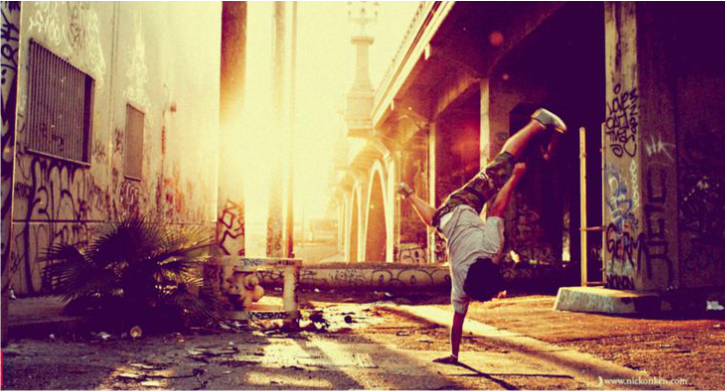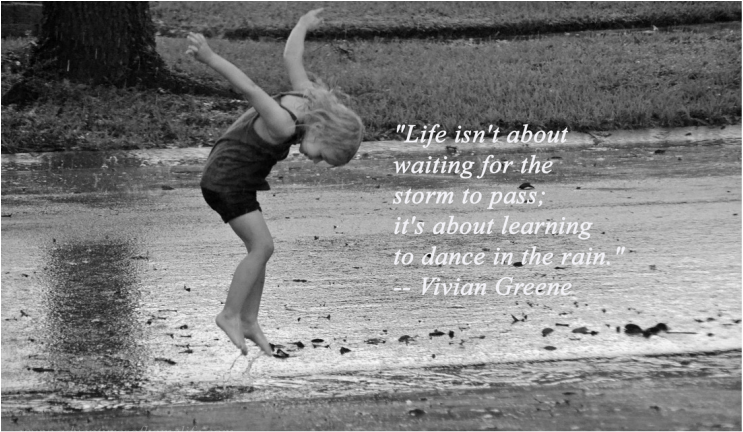Steve Jobs — 'We're here to put a dent in the universe. Otherwise why else even be here?' Do you find that you become depressed sometimes? Do you find that everything you 'know' you are on the inside: Sexual? Hungry? Happy? Angry? Sad? Sometimes it isn't safe to reveal. Sometimes it feels like you can't even connect with those things, let alone show them to others. So you suppress them. Depression is the result of long-term suppression. My work in positively-mindful is to help people find balance and happiness. If you want to find your joy and balance you have to express - emotions, desires, fears, art - get out of your head and wake the body up! This requires MOVEMENT! Children do this naturally... then society teaches them to suppress their natural expressions of emotions, which results in their hearts and muscles becoming hardened. But you can RE-TRAIN to re-integrate your body and mind, to release emotions, in a controlled and relaxed way. Some call this 'Bio-energetics', catharsis, dance, or simply going for a walk! When people talk about mindfulness they often think of meditation and stillness but actually movement and expression are just as important. Depression is simply the lack of expression, habituated. Mindfulness highlights old, unhealthy habits and directs us to what we need - new, healthier habits, one of which is controlled self-expression. These days I'm integrating something into my workshops called 'bio-energetics', which recognises that emotions are simply energy in motion - they want to move through you. If you suppress them you create tension, which can be useful or fun when used consciously, but when suppressed unconsciously this creates long-term stress and the opposite of ease - disease.. I did a TEDx talk back in 2015 and I mentioned how three things transformed my perspective on life: Mindfulness, Emotional Literacy and Self Expression. In this blog I’m going to look at why self-expression can be fundamental to the human spirit and to wellness. I used these to help me overcome depression in my life. CONNECTION THROUGH EXPRESSIONI recently started teaching dance. The dance I teach is an alternative version of ‘Blues Dancing’. The reason I call it alternative is because the dance I prefer has more emphasis on connection and expression than on style and precision of movement. It diverts away from traditional style of male-lead, female-follow and also from the musical preferences. I was taught a lot by Justin Riley, who inspired me with the idea of four main types of connection that can also be seen in life: 1. Connection with your ‘self’. We always start with ourselves. If we don’t take time to connect with and express our inner truth we miss so much outside of ourselves. Since we experience everything through our mind and body it is important to first connect here and now and see how you are feeling/thinking as this has an influence on your external connections. The main access route into self-knowing is your feelings and emotions. Mental knowledge about yourself is fascinating and endless - it is the ego and the persona - who you think you are - but as Jim Carrey said: “...ultimately, we’re not the avatars we create. We’re not the pictures on the film stock. We are the light that shines through it. All else is just smoke and mirrors. Distracting, but not truly compelling.”  Allow your playful side to feel the beat of life Allow your playful side to feel the beat of life Real connection requires emotions. Bruce Lee called this 'Emotional Content'. Without first connecting to yourself - your body - how you feel, you may find that subsequent experiences lack connection - then the lessons you are trying to learn from will not be embodied as deeply. One cannot learn about any subject fully (for example learning to swim) without some 'conscious contact' (eg. getting in the water, feeling into it, to develop safety and then letting go and floating, to test boundaries.) Therefore learning and self-connection also require moments of self-empathy, stillness and breath. We can then express honestly, rather than suppress and depress our truth. Then you build and develop your emotional intelligence - the ability understand, use and appreciate your emotions. 2. Connection with the floor (balance) We are physical beings and when we get a good sense of our movement and orientation we feel more able, agile and grounded, less fearful and therefore more attention is put into learning and connection, than into our concerns for safety. 3. Connection with the rhythms Life has natural rhythms and connecting to it is a subtle art. It's essential we listen to what is going on and make sure we feel ‘what moves us’. In music I often follow the drums, for others the singing is prominent or perhaps the bass. In life it we must decide ‘what motivates me?’ What do I love? What am I drawn to and what provides me with the really lasting feeling of fulfilment. We only learn this by paying attention and then experimenting. Playing! 4. Connection with others: in relationship and communication. Connecting with other human beings is fundamental to our happiness. Not many people can be truly happy without some form of relationship with another. The most cruel punishment of any being is solitary confinement, which often leads to deep depression. An honest relationship is the only type of relationship that nourishes you - that gives you energy and motivates you. Dishonest relationships tends to take energy to maintain. If we keep having relationships that are dishonest we start to forget who we are, why we love life and what we want. This leads to confusion, numbness, depression and contributes to the society of insanity that we live in - were possessions and money are more important than love and family. 'Things' and 'achievements' become more important than 'enjoyment' and 'love'. When we are able to balance and bring in healthy and controlled expression to ourselves and others we are able to enter relationships from our true, authentic selves. This is much easier when you have accepted yourself - as you free yourself from needing the acceptance of others. “Honestly Expressing Yourself: It is very difficult to do. It has always been very easy for me to put on a show and be cocky, and be flooded with a cocky feeling and feel pretty cool and all that. Ohhh, I can make all kinds of phoney things. Blinded by it. Or I can show some really fancy movement. But to experience oneself honestly, not lying to oneself, and to express myself honestly, now that, my friend, is very hard to do - you have to train!” - Bruce Lee PLAYFULNESS AND PRESENCE: GROWING YOUR COMFORT ZONEPractice of mindfulness develops patience in 'presence'. When we are present - paying attention to what we are doing or experiencing we tend live less 'automatically' and more 'consciously'. It then becomes quite clear that we would rather cultivate compassion and playfulness than seriousness and concern. So ultimately we look for ways to express - to free us from concern - that 'enlightens' us of emotional and intellectual worry. What stops you? So, go! Move! Make something! What does your body want?! If you don't know - try something - don't be afraid to make some mistakes, amazing mistakes, glorious and fantastic mistakes. Break rules. Leave the world more interesting for your being here. As Neil Gaiman says: "Make good art" But it's not that easy - right? There if fear in the way. What if I hurt myself or someone else? What will people think? It's not easy, but it is important to find your ways to express yourself, to feel accepted, seen and celebrated. For me, dancing is one tool, but it felt terrifying, when I started. I had to find places that felt kind and safe - appropriate places to do this work, to grow, until I felt ready to reveal myself to the world. The good news is that the longer you train in safety, the more your confidence will grow and the more you listen to yourself. This will help you feel when you're ready for the next step. But the longer you wait to start the more tension and fear will build up, the less likely you will be able to express yourself. In which case you are likely to suppress instead, which often leads to depression. If you have already learned to express yourself well, then could you encourage and include others to express themselves? How can you do this effectively? I certainly find am now able to do this in dance, simply by smiling! I help others to expand their comfort zones, by using what I've learned about expression. I have created a new PLAYSHOP exploring this theme. in mid-May. Come and express yourself, expand your comfort zone and find balance! Good luck and enjoy! “You must strive to find your own voice. Because the longer you wait to begin, the less likely you are to find it at all.”
2 Comments
Daria
29/9/2022 02:50:39 pm
One way to increase your mindfulness is through meditation. There are science-based benefits of a regular meditation practice, including stress reduction, pain control, increased strength, sleep improvements, and decreased blood pressure. Even five minutes a day can make a notable impact on both your mental and physical health! Note that a mindfulness practice is a great habit to include in your daily routine but should never replace professional help (net-bossorg/mindfulness-by-julia-hanner).
Reply
Leave a Reply. |
AuthorsNeil Morbey is a meditation teacher, group facilitator and inspiration guide for Positively-Mindful.com Blog Index
Archives
May 2024
|


 RSS Feed
RSS Feed